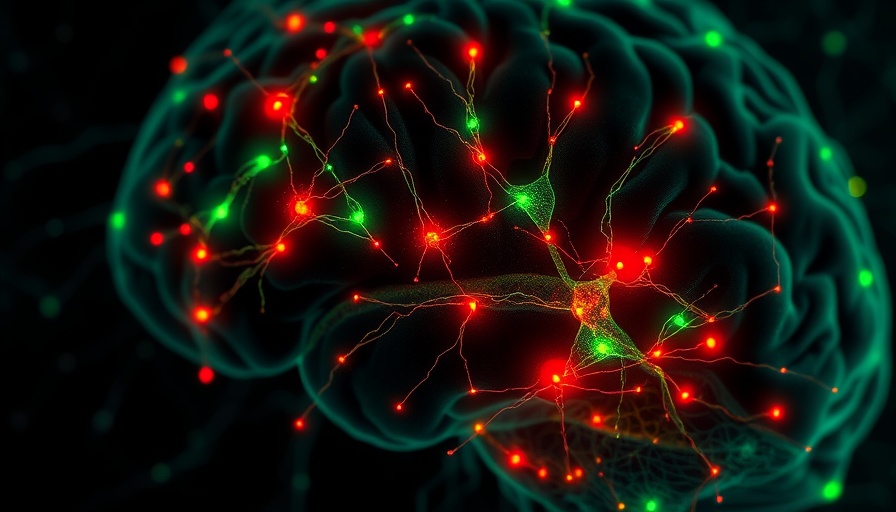
Understanding the Brain-Inflammation-Apathy Connection
The recent study from Washington University School of Medicine has unveiled a significant connection between inflammation due to cancer and a marked loss of motivation and energy, commonly observed in advanced cancer patients. This groundbreaking research highlights the role of specific neurons in the brain that respond to inflammation signals, unveiling a previously misunderstood biological mechanism. It challenges long-held assumptions that fatigue and apathy are merely products of the physical decline associated with cancer, suggesting instead that these symptoms can be influenced by neurological factors.
The Role of Dopamine in Motivation
At the core of this discovery lies dopamine, a neurotransmitter that is crucial for motivation and reward-seeking behavior. The research indicated that cancer-related inflammation activates a pathway in the brain that suppresses dopamine levels. This suppression leads to the apathy and lack of drive that many patients report. By blocking this inflammatory pathway, researchers were able to restore motivation in mice suffering from cachexia, a condition of severe muscle wasting often accompanying advanced cancer. This finding opens new avenues for treating mental and emotional challenges in cancer care, separate from the physical treatments directed at the disease itself.
Implications for Cancer Care
The implications of these findings are profound for both patients and healthcare providers. If apathy can be treated independently from cancer symptoms, this could dramatically improve the quality of life for many patients. Approximately 70% of individuals with advanced cancer experience cachexia, suggesting that addressing the psychological aspects of this condition could play a vital role in their overall treatment strategy. This research emphasizes the importance of a holistic approach in health and wellness, where mental health is given equal weight alongside physical health.
Future Directions in Cancer Research
Moving forward, understanding the exact mechanisms by which inflammation impacts motivation will be crucial for developing targeted therapies. It raises essential questions about how inflammation-related conditions may affect not just cancer patients, but others dealing with chronic illnesses. How might addressing inflammation in the brain enhance well-being in patients suffering from conditions like diabetes, autoimmune diseases, or even depression? The potential for broader applications of this research is significant.
Community Health and Wellness Considerations
This research also ties into the larger narrative of health and wellness across various communities. As we unravel more about the connections between brain activity, inflammation, and mental health, local health organizations can develop community health programs that offer education about proactive approaches to mental wellness. In San Antonio, wellness events and programs could incorporate findings like these to enhance understanding of cancer effects beyond the physical dimension and offer support strategies that address emotional well-being.
A Call to Action: Embrace Holistic Health
As the landscape of cancer treatment evolves, individuals and communities need to be advocates for health and wellness initiatives that encompass both body and mind. Whether through nutritional supplements, lifestyle medicine, or engaging in local health events, embracing a holistic approach to well-being can be immensely beneficial. For those looking to explore these approaches further, attending local health and wellness events can provide valuable insights and support networks.
 Add Row
Add Row  Add
Add 




 Add Row
Add Row  Add
Add 


Write A Comment